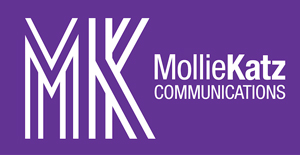I didn’t know anything about immunology in cancer care when I was hired to ghostwrite a letter to persuade a layperson of the extraordinary skill of a particular cancer doctor. But it’s impossible to write meaningfully about a subject you don’t understand.
I’ve written often about health and science, but the background material I’d been given this time was simply over my head. It had been written by one highly specialized physician for others at his professional level.
But my task was to draft a letter for his signature. I was going to need to research the science, comprehend its broader context, and then explain it all in plain English. So I pulled from that material all the words and concepts I’d need to know. And then I started googling like crazy to figure out what they meant.
What I Found
Question-and-answer fact sheets from the American Cancer Society and Memorial Sloan Kettering Cancer Center helped. They were written by well-informed people for cancer patients and their families. Probably that audience was like me, new to the subject and needing good information fast.
Once I got the basics, I probed other topics entwined with immunology research for treating cancer. Combining information from a pharmaceutical company’s website and Encyclopedia Britannica, I bolstered my knowledge of the bench-to-bedside discovery process for new drugs.
Journal articles from the National Library of Medicine’s National Center for Biotechnology Information helped me get a broader view. They tied together larger concepts in the field — the use of the immune system to fight cancer, the importance of molecular level indicators in advancing new treatments, and the ways computer analyses are used in groundbreaking research and care.
Putting It All Together
With this research, I’d come to understand the vocabulary of cancer immunology and the skills a physician-researcher would need to excel in this field. I was ready to construct a persuasive case endorsing the physician who was the subject of my writing.
But first I had to capture what I’d learned in the everyday language the reader would need to assess this physician’s great value in medicine.
Here’s what I wrote:
“Because of the mapping of the human genome, in medicine today we now see that virtually all illnesses have some genetic component. And because each individual’s genetic makeup is unique, we are moving toward new medical treatments that are highly personalized to each patient’s precise genetics. This approach is known as personalized or precision medicine.
Immunotherapy is an example of precision medicine. It uses genetics to harness the body’s immune system to fight cancer. Without immunotherapy, cancer can evade many of the immune system’s natural defenses. But the more we learn about a tumor’s makeup, the more precise targets and diagnostics we can create against it using immunotherapy. All immunotherapy for cancer aims to stop or slow the growth of cancer cells, help the immune system destroy cancer cells, or stop cancer from spreading within the body.”
The Takeaway
Communicating authoritatively requires understanding three factors well — your audience, their level of understanding, and your subject matter. Translating complex ideas into plain English may take some detailed research. However, solid research can make all the difference in writing confidently and convincingly.


